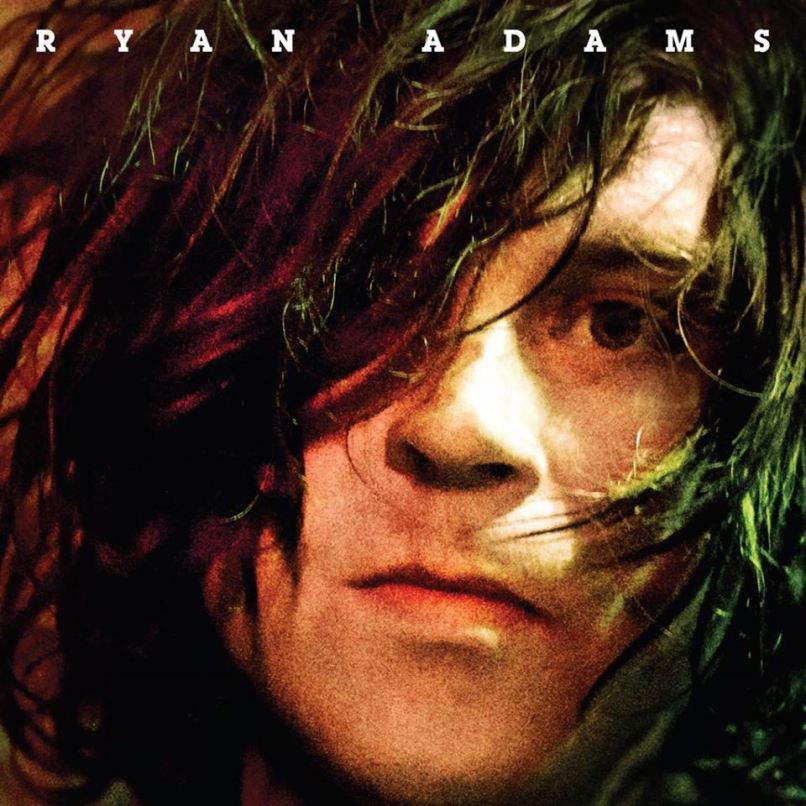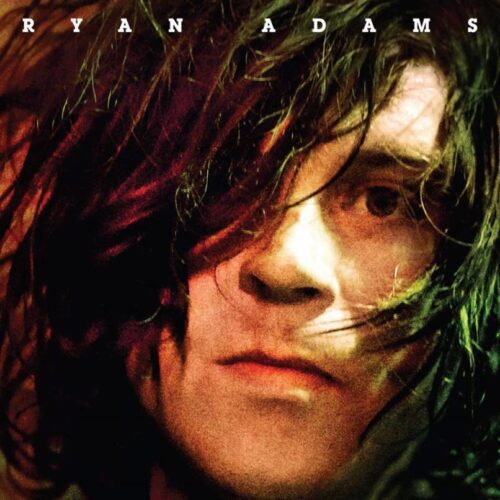The deserved praise that greeted Ryan Adams’ 2011 album Ashes & Fire, and admittedly in many ways the album itself with its "maturity", "sincerity" and "restraint", suggested that the prodigal son had come home – home to the lush, romantic alt-country that initially made his name. The fact it has been some three years since then further proves that he is more relaxed about music-making these days, compared with the more fevered, urgent pace of output in his younger years. But the album he has returned with destroys any notion that he was set to coast down the more acoustic route for a prolonged period. After all, he referred to an alternative recording of the songs that ended up on Ryan Adams, with Ashes & Fire producer Glyn Johns, as "slow adult shit". Ryan Adams has already attracted accusations of ‘stadium rock’, that it is corny, that it is comparable with near namesake Bryan (the video to single ‘Gimme Something Good’ somewhat reinforces this) and that it is disappointingly generic. Some might even see this as slow, adult shit.
There is no getting around the fact that the likes of Tom Petty loom very large, particularly on the emotive, bombastic opener, ‘Gimme Something Good’. Springsteen circa Tunnel Of Love also casts a shadow as do, in the album’s ballsier moments like ‘I Just Might’, long-term influence The Replacements. But all this is irrelevant, as it’s a great record. With the notable exceptions of Rock n Roll, that most suspicious of albums, and Gold, which has not aged well, no matter how he has framed the songs production-wise, it has been his exquisite gift for melody that has overridden everything else, be it the textured folk rock of Cold Roses or Ashes & Fire, the subdued quiet of 29 (still his best record), the rich country of Jacksonville City Nights or the Radiohead-inflected Love Is Hell. So yes, there is a certain contrast between Ashes & Fire and Ryan Adams in terms of which epoch he is paying tribute to (Adams being one of the more passionate rock historians), but ultimately it is the melodies, rhythms, structures and pacing of these 12 songs that are most prominent. In this sense, much is the same: the lush chord changes remain, as does the mix of impassion, disorder and tenderness. In short: those who adore Heartbreaker shouldn’t be put off by the all the electric guitars that sound like they could be the intro song for some iconic/ironic 80s film, like Mannequin or something, because underneath it all his essence endures. These songs are simple, strong and taut (though far from punk), indeed, in many ways this album sounds more like Whiskeytown than anything else from his solo career – particularly his former band’s second album Strangers Almanac.
Adams is a better singer than all of Springsteen, Petty and Westerberg, and it is his power in this way that hits you hardest on ‘Gimme Something Good’, his voice travelling through several different levels of strained emotive expression. It’s probably the best vocal take on the album, sitting above a Tom Petty-by-way-of-Steve Earle mix of burly guitars and organ.
The songs with most in common with Ashes & Fire are probably ‘Am I Safe’ and ‘My Wrecking Ball’, proving the acoustic guitar is still integral to this new aesthetic. The former possesses a lovely middle section and guitar solo that would sit well on several past albums. ‘My Wrecking Ball’ is a soft ballad, its only nod to this album’s general style being a quivering organ line. Within the context of Ryan Adams it is an absorbing change of pace, even if he has achieved this stark acoustic intimacy with more finesse elsewhere.
It’s interesting to note that the record’s strongest and weakest points are ostensibly similar. Both ‘Kim’ and ‘Shadows’ are mid-tempo, simmering things designed to teeter on the brink of something more dramatic rather than fully embrace the 80s gusto of tracks such as the slightly silly ‘Stay With Me’ or ‘Tired Of Giving Up’. On ‘Kim’, this becomes a little cumbersome, the admittedly attention-grabbing chorus, made up of the one-word title, jarring the song’s passage following an attractive enough verse –his best songs have a certain soothing naturalness and harmonic symmetry to them, which ‘Kim’ lacks. ‘Shadows’, however, offers this in spades and stands as one of the best songs he has produced since 29. A simple guitar refrain and unerringly basic snare beat allow his vocals again to stand centre-stage on a track with a loose structure melodically, yet rigid foundations due to its instrumental austerity. It’s not absurd to suggest Purple Rain as a reference point, such is its atmosphere and restraint.
Lyrically, this is a world away from the innocent, nostalgic Americana of many of his other albums, informed by folk like Thomas Wolfe and Jack Kerouac. Here is his old friend romantic angst in heavy, relatively unpoetic dollops, with fewer metaphors and less arresting imagery, things that so define his most moving work. Many songs are direct addresses to a pined-after other, without much linguistic decoration, with the exception of ‘Let Go’, where the river and the ocean, those familiar sources of emotional effect, return.
In the broader context of his career, Ryan Adams acts as an interesting, charmingly blunt counterpoint to majestic albums like 29 and Love Is Hell where he is a more ghostly presence. As such this is not his best record. It’s about sixth or seventh. But it’s still a triumph of sorts – a curious, meandering journey that needs to be made a good few times.
<div class="fb-comments" data-href="http://thequietus.com/articles/16270-ryan-adams-ryan-adams-review” data-width="550">



